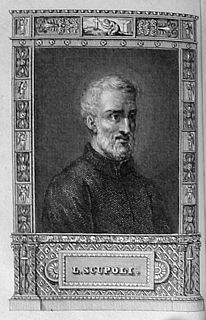A Quote by John le Carre
We lie to one another every day, in the sweetest way, often unconsciously. We dress ourselves and compose ourselves in order to present ourselves to one another.
Related Quotes
We want to think of ourselves as truly special creatures that are unique in the universe and, well, we are. And we have that capacity to wonder, to question, and to see ourselves in the context of all of life that has preceded the present time, and all that will go off far into the future, one way or another.
The ultimate reason for meditating is to transform ourselves in order to be better able to transform the world or, to put it another way, to transform ourselves so we can become better human beings in order to serve others in a wiser and more efficient way. It gives your life the noblest possible meaning.
Detachment from things does not mean setting up a contradiction between 'things' and 'God' as if God were another thing and as if creatures were His rivals. We do not detach ourselves from things in order to attach ourselves to God, but rather we become detached from ourselves in order to see and use all things in and for God.
This love of ours, in so far as it is a love for one particular creature, is not perhaps a very real thing, since, though associations of pleasant or painful musings can attach it for a time to a woman to the extent of making us believe that it has been inspired by her in a logically necessary way, if on the other hand we detach ourselves deliberately or unconsciously from those associations, this love, as though it were in fact spontaneous and sprang from ourselves alone, will revive in order to bestow itself on another woman.
[W]omen's magazines know that more than two thirds of women pray each day so they tend to promote "spirituality" which is warm, soft, fuzzy, and "me-centered, " rather than religion, which is definitely not. Shot with a soft-focus lens, spirituality in women's media has morphed into another method of stress reduction. Lulling and inoffensive, spirituality is more about taking long walks and buying $65 Jo Malone scented candles than making ethical decisions or moral judgments. It's another way to calm ourselves, refresh ourselves, or applaud ourselves.






































